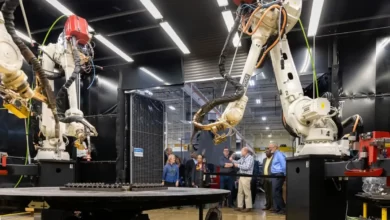A remarkable evolution that promises to revolutionize how we move from place to place is Electric vehicles (EVs). The use of non-fossil powered vehicles once seen as a niche concept, have rapidly transitioned from novelty to mainstream, sparking a significant shift towards sustainable and eco-friendly mobility solutions. This article will take you through the burgeoning landscape of electric cars, exploring their rise, benefits, challenges and the transformative impact they are poised to have on the future of transportation.
The Dawn of a New Era: Electric Cars Take Center Stage
The concept of electric vehicles dates back to the early 19th century, but it’s only in recent years that they’ve gained substantial traction. The push for EVs gained momentum due to concerns over climate change, urban air quality, and fossil fuel dependency. As technology advanced and environmental awareness heightened, major automotive manufacturers began dedicating resources to develop electric cars that could rival their internal combustion engine counterparts.
Historical Context: Reviving an Old Idea
The idea of electric vehicles is far from new. In fact, it traces back to the early 19th century when inventors and visionaries toyed with the concept of harnessing electricity to power vehicles. However, limited battery technology, low energy density, and the convenience of gasoline engines relegated electric cars to the periphery of the automotive landscape for decades. It wasn’t until the 21st century that advancements in battery chemistry, materials science, and a collective realization of the environmental challenges posed by fossil fuels breathed new life into this old idea.
Climate Concerns and Technological Advancements
The catalyst for the resurgence of electric cars was an increasing concern about the environmental toll of traditional gasoline-powered vehicles. With mounting evidence of climate change and its dire consequences, governments, industries, and consumers began seeking viable solutions to reduce carbon emissions and air pollutants. Enter the electric car—an ingenious solution that offered the potential to drastically lower greenhouse gas emissions, improve urban air quality, and decrease dependence on finite fossil fuel resources.
Major Players Enter the Scene
As the importance of sustainable mobility gained traction, major automotive manufacturers began to invest heavily in research and development of electric cars. Pioneering companies like Tesla, Nissan, and Chevrolet introduced electric models that showcased the capabilities and potential of electric propulsion systems. Tesla, in particular, revolutionized the market with its sleek, high-performance electric cars that captured the imagination of consumers and forced traditional automakers to take notice.
Shifting Perceptions and Mainstream Adoption
The journey of electric cars from being perceived as novelties to legitimate contenders on the road was not without its challenges. Skepticism about range limitations, charging infrastructure, and the overall feasibility of electric cars lingered in the minds of potential buyers. However, as battery technology advanced and EV ranges increased, these concerns began to wane.
Governments around the world played a pivotal role in accelerating the adoption of electric vehicles. Incentives such as tax rebates, subsidies, and exemptions from congestion charges incentivized consumers to make the switch to electric cars. Additionally, stricter emissions regulations pushed automakers to invest in electric technology to meet environmental standards.
A Paradigm Shift: Driving into the Future
The rise of electric cars signals not just a shift in propulsion technology, but a broader paradigm shift in how we conceive of transportation. Electric vehicles are at the forefront of a larger movement that encompasses sustainable urban planning, renewable energy integration, and the convergence of automotive and technology sectors.
Moreover, the concept of vehicle ownership itself is undergoing a transformation. Electric cars have spurred the rise of shared mobility services, such as ride-hailing and car-sharing, which leverage the convenience and efficiency of EVs for both operators and consumers. This shift has the potential to reduce the number of vehicles on the road, alleviate traffic congestion, and lower carbon emissions.
Benefits Galore: Why Electric Cars Matter
Environmental Friendliness: Electric cars are inherently more eco-friendly as they produce zero tailpipe emissions. By eliminating exhaust emissions, they significantly contribute to reducing air pollution and greenhouse gas emissions, helping combat climate change.
Reduced Operating Costs: While the initial purchase price of an electric car may be higher, the overall cost of ownership is often lower. EVs have fewer moving parts, reducing maintenance expenses, and electricity is generally cheaper than gasoline.
Energy Efficiency: EVs are far more energy-efficient than internal combustion engine vehicles. They convert a higher percentage of energy from the grid to power at the wheels, resulting in lower energy waste.
Silent Operation: Electric cars run almost silently, contributing to reduced noise pollution in urban environments, making our cities quieter and more peaceful.
Innovative Technology: Electric cars are at the forefront of technological innovation, driving advancements in battery technology, autonomous driving, and connected vehicle systems.
Overcoming Challenges: The Road Ahead for Electric Cars
Range Anxiety: One of the most common concerns surrounding electric cars is range anxiety—the fear of running out of battery before reaching your destination. However, advancements in battery technology have significantly extended the driving ranges of EVs, alleviating this concern.
Charging Infrastructure: While charging infrastructure has improved considerably, there’s still a need for further development to make charging as convenient and widespread as refueling at gas stations.
Initial Cost: While the long-term operational costs of EVs are lower, the initial purchase price can be a deterrent for some buyers. However, government incentives, rebates, and falling battery costs are gradually addressing this issue.
Battery Life and Recycling: The longevity of batteries and the environmental impact of their disposal or recycling are important considerations for the sustainability of electric cars. Efforts are being made to enhance battery durability and establish effective recycling methods.
Driving into the Future: The Impending Transformation of Transportation
The automotive industry is at a pivotal juncture. As governments worldwide implement stricter emissions regulations and customers demand more sustainable options, electric cars are set to reshape the entire transportation landscape.
Autonomous Driving: Electric vehicles and autonomous driving technologies are mutually reinforcing trends. Many companies are developing EVs with integrated self-driving capabilities, promising safer and more efficient roads.
Renewable Energy Integration: The synergy between electric cars and renewable energy sources like solar and wind power is undeniable. EVs can serve as energy storage solutions, helping balance grids and maximizing the utilization of renewable energy.
Shared Mobility: The rise of electric, autonomous vehicles paves the way for transformative changes in how we view car ownership. Shared mobility services, such as ride-hailing and car-sharing, could become more cost-effective and environmentally friendly with electric fleets.
Smart Cities: Electric vehicles are a cornerstone of smart city initiatives. They align with the goal of creating sustainable, efficient urban environments with reduced pollution and congestion.
Job Reskilling: As the automotive industry shifts towards EV production, job roles will evolve. Workforces will require reskilling to adapt to the changing demands of electric vehicle manufacturing and maintenance.
Conclusion
The rise of electric vehicles signifies a turning point in the history of transportation. These eco-conscious, technologically advanced machines hold the potential to not only reshape our roads but also contribute significantly to a cleaner, greener planet. As charging infrastructure improves, battery technology advances, and prices become more competitive, the transition to electric cars will become increasingly seamless. The future of transportation is electric and it’s a future we should all be excited to embrace.









